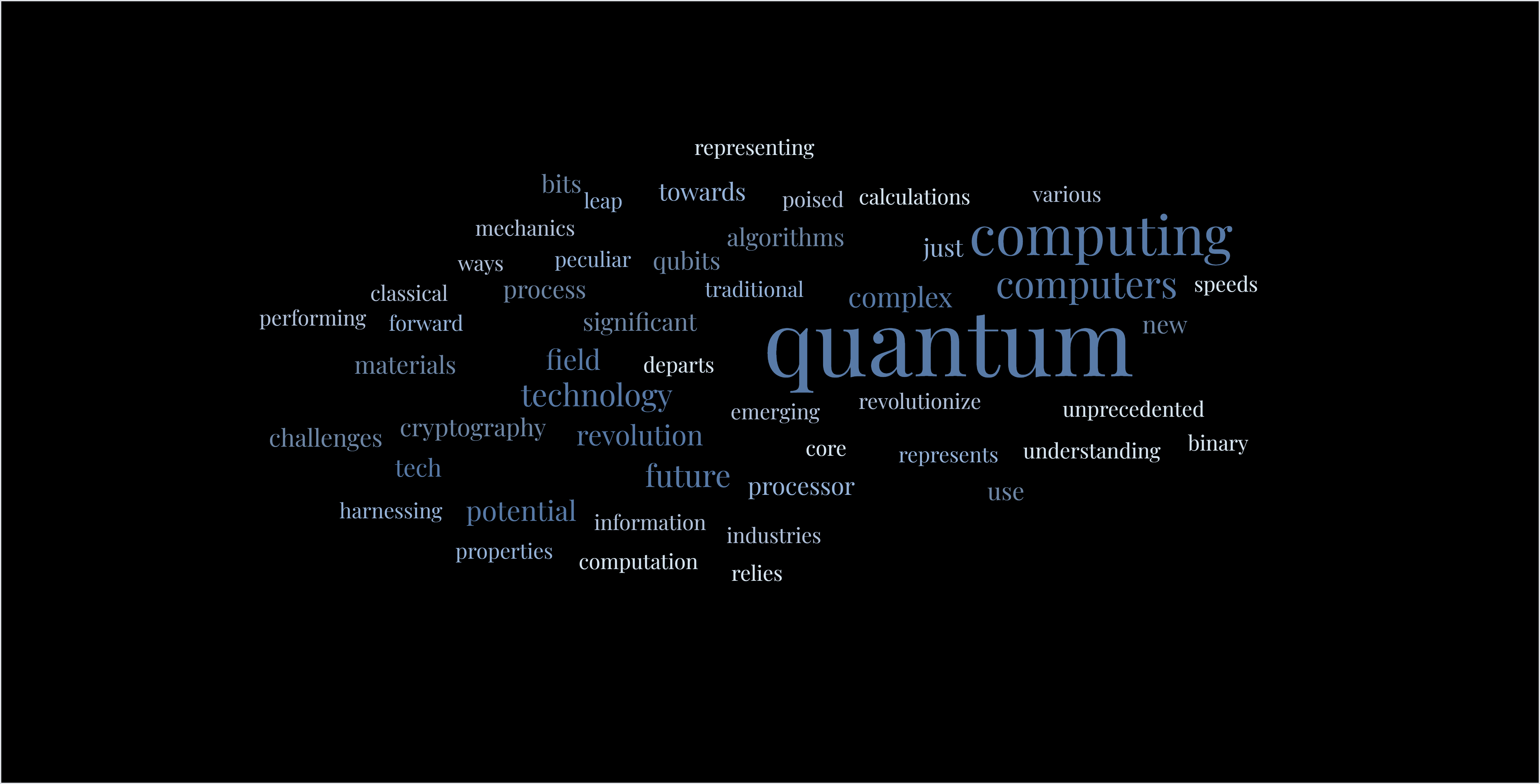Quantum Computing: The Future of Tech Revolution?

Quantum Computing: The Future of Tech Revolution
Quantum computing represents a significant leap forward from traditional computing, harnessing the peculiar properties of quantum mechanics to process information in ways that classical computers cannot. This emerging technology is poised to revolutionize various industries by performing complex calculations at unprecedented speeds.
Understanding Quantum Computing
At its core, quantum computing departs from binary computation, which relies on bits representing either 0 or 1. Quantum computers use quantum bits, or qubits, which can exist in multiple states simultaneously thanks to the principle of superposition. This allows quantum computers to process a vast amount of possibilities in parallel, dramatically increasing their computational power.
The Potential Impact
The implications of quantum computing are far-reaching. In fields like cryptography, quantum computers could break many of the encryption algorithms currently in use, necessitating the development of quantum-resistant cryptography. In drug discovery and materials science, they could analyze molecular structures in high detail, accelerating the creation of new medicines and materials.
Current State and Challenges
Despite the potential, quantum computing is still in its infancy. Researchers are working on making quantum computers more stable and scalable, as the qubits are highly susceptible to interference from their environment, a challenge known as quantum decoherence. Moreover, the technology requires extremely low temperatures to function, which presents significant engineering challenges.
The Road Ahead
The future of quantum computing is bright, with industry leaders and academic institutions fervently pushing the boundaries of what's possible. IBM's anticipated release of the 1,121-qubit processor, Condor, and their shift towards modular quantum computers with the Heron processor, signal a maturing of the field. Similarly, breakthroughs in quantum algorithms by companies like Goldman Sachs suggest that practical quantum computing applications could be just over the horizon.
Conclusion
Quantum computing is not just a new technology; it's a potential tech revolution that could redefine how we solve some of the world's most complex problems. While there are hurdles to overcome, the progress in the field is promising, and the collaborative efforts of experts worldwide indicate that the quantum future is closer than we might think.
Quantum computing is a fascinating and complex subject that holds the promise of transforming technology as we know it. As we stand on the cusp of this quantum revolution, it's an exciting time to be involved in the field, whether as a researcher, a developer, or simply an observer of its evolution. The journey towards a quantum future is underway, and it's one that could change everything from how we secure our data to how we explore the universe.
Contact Us to learn more